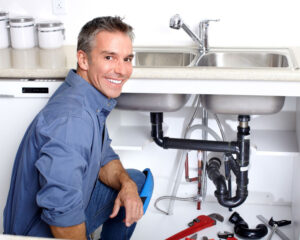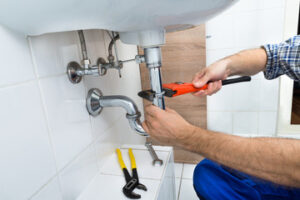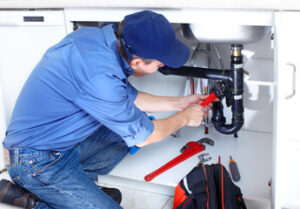Most homeowners will experience a plumbing emergency at some point. Preventative maintenance at Plumbing Express, Inc. can help reduce the chances of an emergency situation, but sometimes things just break down.
When it comes to a plumbing emergency, knowing when to call a 24-hour plumber can save you money and prevent costly damage to your home. Read on to learn the top signs that it’s time to call an emergency plumber.
The toilet is one of the most common plumbing components that can be a source of an emergency situation. Fortunately, you can often avoid these emergencies by following some basic maintenance tips.
The first step to preventing an overflowing toilet is turning off the water supply valve. This is usually located behind the toilet, and it can be turned clockwise to stop the flow of water. If this doesn’t work, it may be necessary to call a plumber.
If the toilet continues to overflow, it is likely because of a clog in the drain line or the sewer system. It could also be caused by an overflowing water tank. In some cases, you can use a plunger to help clear the clog. However, if this doesn’t work or you have multiple toilets that are overflowing, it is best to call an emergency plumber.
You should also consider whether or not your toilet is leaking, as this can be an emergency plumbing issue as well. If you have wood cabinets or other sensitive areas around your toilet, you should hire an emergency plumber as soon as possible. Leaking toilets can soak into these materials and cause extensive damage.
Another sign that it’s time to call an emergency plumber is if your toilet water is discolored. This is an indication that your water is contaminated with something. If your home has a septic tank, this is often a sign that it’s time to get the tank emptied.
Emergency plumbing situations are usually fast-paced, so it’s important to find a plumber near you that can provide quality services in an efficient manner. Make sure to vet potential plumbers by comparing online reviews and testimonials before making your decision.
The most important thing you can do to prevent plumbing emergencies is to be mindful of the types of items that you flush down your toilet. It’s best to only flush toilet paper and natural waste, and you should put grease into a container where it will harden before disposing of it down the drain. This will help keep your pipes free from clogs and other problems.
Broken Fixtures
When a fixture breaks, it can leave you with no water to wash dishes, clean your home, or even take a shower. This is a clear emergency plumbing situation that requires the attention of an experienced plumber as soon as possible. It’s also an emergency if sewage backs up into your drains, as this is a health and safety risk for you, your family, and your guests. Emergency plumbers will be able to diagnose and fix the problem quickly to restore your plumbing fixtures and avoid further damage.
When it comes to deciding whether to call an emergency plumber, it’s important to remember that while some issues require immediate attention, others can wait until normal business hours. The key is to ask yourself a few key questions to evaluate the scope of the issue and find out whether it’s an emergency or can be left until tomorrow.
The most obvious sign of a broken fixture is that you’re without a functioning toilet, sink, or faucet. This can make it difficult to cook, clean, and sanitize your home, especially if you have children or elderly people living there. In the case of a toilet, if it’s blocked completely and won’t flush, this is a serious issue that will need to be addressed immediately by an emergency plumber.
Other signs of a broken fixture include strange noises coming from your pipes, particularly banging and rattling sounds. This can indicate air pockets in your pipes that need to be fixed, as well as other more serious problems like a broken pipe or a crack in a joint. If you’re hearing these noises, it’s imperative to contact a plumber as soon as possible to avoid further damage and potentially costly repairs.
If you’re unsure whether to call an emergency plumber, it’s best to contact multiple professionals and ask for quotes. This will help you find the most affordable option and will give you peace of mind that you’re choosing a professional who can respond to your emergency promptly and efficiently. It’s also a good idea to check out online reviews and testimonials to see what other customers have to say about their experience with the plumber.
Burst Pipes
If a pipe bursts, it can flood your home with gallons of water and cause significant damage. It’s also likely to disrupt your household routine and cost you money for unexpected repairs and clean-up. Fortunately, there are some steps you can take before calling an emergency plumber to minimize the damage and keep your family safe and dry.
Frozen pipes are one of the most common causes of burst pipes. The expansion and contraction of ice puts pressure on the pipe until eventually something gives. Most often, this happens in the weaker joints or in areas where the pipe is exposed, such as in crawl spaces, basements, and attics.
When the pipes burst, water can quickly flow out of the pipe and seep into the walls, floors, or ceilings of your home. It can also be a serious health risk, causing mold and mildew and potentially contaminating your water supply. In addition, the water can stain your carpets, furniture, and other items.
The first thing you should do when a pipe bursts is shut off your main water valve. This will stop the flow of water and prevent further damage to your home. It’s a good idea to mark the shut-off point clearly, so everyone in your house knows where it is and what to do.
Next, move any furniture and other possessions away from the affected area. This will help reduce the amount of water that leaks out and make it easier for the emergency plumber to find and repair the problem. You should also check the exterior of your home for signs of a burst pipe, such as wet or discolored spots on the walls or floors and puddles in your yard.
Finally, call your insurance agent to report the incident and get started on an insurance claim if necessary. In many cases, the cost of a burst pipe is covered by building insurance. If not, an emergency plumbing company will be able to help you with the claim process and work directly with your insurer to cover the costs of cleaning up and restoring your home.
Clogged Drains
Clogged drains are a common problem that many homeowners face at some point. Thankfully, they’re usually less severe than burst pipes or flooding and can be handled fairly quickly by an emergency plumber. When looking for an emergency plumber, make sure to choose one who is close to your home or office. This will ensure they can arrive faster and start work as soon as possible to minimize damage. It is also important to communicate clearly with your chosen plumber so they know exactly what kind of problem you’re facing.
Most drain clogs form over time as grease, hair, soap scum, and other waste build up on the inside of your pipes. Eventually, this will cause the water in your house to back up, creating an unpleasant and hazardous situation. In some cases, a clogged drain can even result in raw sewage backing up into your home.
To prevent clogs, try not to dispose of any waste down your drains that isn’t meant for them. Instead, use a plunger or a plumbing snake to dislodge any blockages. You can also help avoid clogs by regularly draining your pipes with hot water.
If you notice that your drains aren’t working as they should, turn off the water supply to your house immediately and call a 24-hour plumber. They’ll be able to advise you on the best course of action for your specific situation and provide emergency services as needed.
Another indication that you need to call an emergency plumber is if you notice that your water has become discolored. This could mean that there is a significant leak in your plumbing system that needs to be addressed as soon as possible.
Leaking pipes are another type of emergency that you should never ignore. Not only will they cause major damage to your property, but they can also pose health risks for you and your family. Water leaks can lead to mold and mildew and can also cause rot in your walls and flooring. Leaking pipes can also cause electrical problems, as the water may reach and damage your home’s wiring.

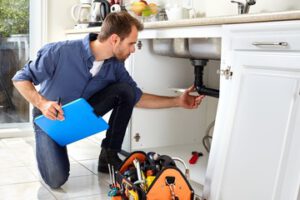 In 2016, the Department of Buildings (DOB) introduced Local Law 152 which requires that all buildings with exposed gas lines undergo regular inspections to ensure their safety. While it took a few years for the DOB to finalize the details of this law, it is now in full effect with new requirements regarding how often buildings must be inspected, who can perform the inspections, and more.
In 2016, the Department of Buildings (DOB) introduced Local Law 152 which requires that all buildings with exposed gas lines undergo regular inspections to ensure their safety. While it took a few years for the DOB to finalize the details of this law, it is now in full effect with new requirements regarding how often buildings must be inspected, who can perform the inspections, and more.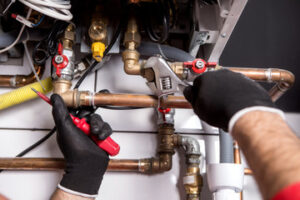 This means that it is more likely for commercial plumbing to experience issues like leaks and clogs. So what separates commercial plumbers from residential plumbers? Read on
This means that it is more likely for commercial plumbing to experience issues like leaks and clogs. So what separates commercial plumbers from residential plumbers? Read on 
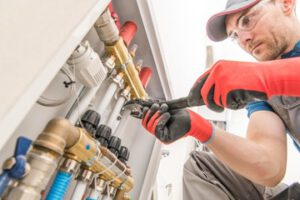 An expert plumber is a professional with extensive training and the qualifications to handle any plumbing issue. These professionals have a deep understanding of the mechanics and physics of plumbing systems and can quickly diagnose and fix any problems that may arise. They have the knowledge and tools required to repair leaks, install new pipes, and maintain the overall health of a plumbing system.
An expert plumber is a professional with extensive training and the qualifications to handle any plumbing issue. These professionals have a deep understanding of the mechanics and physics of plumbing systems and can quickly diagnose and fix any problems that may arise. They have the knowledge and tools required to repair leaks, install new pipes, and maintain the overall health of a plumbing system.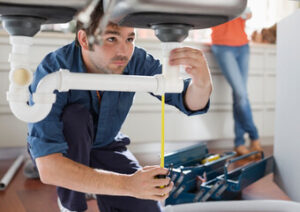 Other trenchless methods include spray lining and brush coating. Both techniques can halt corrosion in cast iron pipes and eliminate sewer gas from leaky joints. If your sewer line leaks, an expert plumber can repair the trenchless sewer. This method
Other trenchless methods include spray lining and brush coating. Both techniques can halt corrosion in cast iron pipes and eliminate sewer gas from leaky joints. If your sewer line leaks, an expert plumber can repair the trenchless sewer. This method 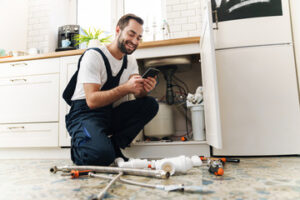 Your home’s plumbing system is a vital part of your daily life. It must run smoothly, from washing dishes at night to getting ready for work in the morning. However, it can also be prone to problems. A plumber’s job is to fix your home’s problems so that you don’t have to worry about them in the future. As a result, it’s important to choose a residential plumber who is transparent about their work and can answer your questions.
Your home’s plumbing system is a vital part of your daily life. It must run smoothly, from washing dishes at night to getting ready for work in the morning. However, it can also be prone to problems. A plumber’s job is to fix your home’s problems so that you don’t have to worry about them in the future. As a result, it’s important to choose a residential plumber who is transparent about their work and can answer your questions.